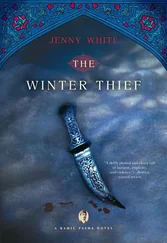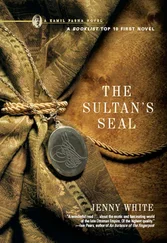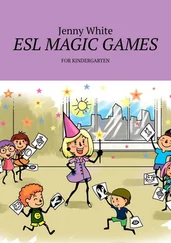Jenny White - The Abyssinian Proof
Здесь есть возможность читать онлайн «Jenny White - The Abyssinian Proof» весь текст электронной книги совершенно бесплатно (целиком полную версию без сокращений). В некоторых случаях можно слушать аудио, скачать через торрент в формате fb2 и присутствует краткое содержание. Жанр: Исторический детектив, на английском языке. Описание произведения, (предисловие) а так же отзывы посетителей доступны на портале библиотеки ЛибКат.
- Название:The Abyssinian Proof
- Автор:
- Жанр:
- Год:неизвестен
- ISBN:нет данных
- Рейтинг книги:4 / 5. Голосов: 1
-
Избранное:Добавить в избранное
- Отзывы:
-
Ваша оценка:
- 80
- 1
- 2
- 3
- 4
- 5
The Abyssinian Proof: краткое содержание, описание и аннотация
Предлагаем к чтению аннотацию, описание, краткое содержание или предисловие (зависит от того, что написал сам автор книги «The Abyssinian Proof»). Если вы не нашли необходимую информацию о книге — напишите в комментариях, мы постараемся отыскать её.
The Abyssinian Proof — читать онлайн бесплатно полную книгу (весь текст) целиком
Ниже представлен текст книги, разбитый по страницам. Система сохранения места последней прочитанной страницы, позволяет с удобством читать онлайн бесплатно книгу «The Abyssinian Proof», без необходимости каждый раз заново искать на чём Вы остановились. Поставьте закладку, и сможете в любой момент перейти на страницу, на которой закончили чтение.
Интервал:
Закладка:
“Well, what do you want, my son?” Kamil asked.
The boy seemed to regain some of his courage. He reached into his sash, drew out an object, and handed it wordlessly to Kamil. It was a quill pen. Kamil took it, puzzled.
“Thank you,” he said, turning it over in his hand. It was a simple, common pen like those used in his office. He examined the boy’s face. He looked familiar, but Kamil couldn’t place him. Perhaps one of the apprentices at the hamam baths he went to every week, or the boy at the coffeehouse who refilled his tea and refreshed the tobacco in his narghile? They were all about the same age, eight or nine, and lean as street cats.
The boy was still looking at Kamil expectantly.
“What’s your name?”
“Avi, bey. I am Avi. I brought you a message from Amalia Teyze,” he blurted out. “You told me that if I learned to use this,” he indicated the pen, “I should come back and see you.”
“Of course,” Kamil exclaimed. This was the young boy sent last year by the Jewish midwife of Middle Village to give him a message about a murder case. He had been so impressed by the boy’s refusal to accept payment-because, the boy had insisted, he was only doing his duty-that Kamil had given him the first object within reach, a pen from his desk. He remembered Avi as the child with hungry eyes, taking in everything in the room. Someone eager to know things.
“Well, Avi. Of course, I remember you.” Kamil wondered what the boy expected of him. Despite the early hour, a small crowd had begun to form around them.
“Why don’t we walk a bit together.” Kamil resumed his climb, the boy keeping pace beside him. Out of the corner of his eye, Kamil could see Avi trying to keep a serious demeanor, but his joy kept breaking through. It both amused Kamil and touched him.
“And did you learn to use the pen?” Kamil asked.
Avi stopped and turned to him with a wide grin.
“Yes, bey. Amalia Teyze taught me letters.”
Kamil was surprised. He had thought the midwife illiterate, like so many of the empire’s subjects. “And what can you write?”
They began to walk again.
“My name,” Avi said excitedly. “I can write my name.”
“Is that so?” Kamil noted noncommittally. He found himself inexplicably disappointed that Avi hadn’t learned more than just his name, but reminded himself that this was more than most people could do.
They stopped at a patisserie and he bought Avi a yeast bun stuffed with goat’s cheese. The well-heeled patrons stared disapprovingly as the boy placed the bun on his palm and swiftly devoured it, using his other hand to shield it. Kamil wondered why the boy ate so quickly and furtively, as if someone might steal the bun from his hands, and realized he must be very hungry. But surely the midwife cooked for the boy? She had seemed a kind and efficient woman. He took a closer look at the boy’s ragged clothing, his grimy face and bare feet. When Avi had come to his office the previous year, his clothing had shown signs of attention from a loving hand. Kamil remembered a colorful sweater and patched but clean trousers. Something must have happened. Had the boy run away? He would give Avi some tea and something more to eat at the courthouse, then sit him down and find out what this was all about. He bought some meat-filled pastries and cheese börek, and then they resumed their walk down the Grande Rue de Pera.
When they reached the entrance to the courthouse, Avi stepped back into the street and, crossing his arms, began to shiver, his eyes shifting between the enormous, imposing door at the top of the stairs, Kamil’s face, and the ground.
“What is it?”
“I really can write,” Avi said softly. “But I’m not anybody.”
Kamil stooped down and told him, “Well, come in and show me what you’ve learned.” He walked up the stairs. Out of the corner of his eye, he saw Avi trailing behind, awestruck.
Kamil greeted the burly doorkeeper. “Good morning, Ibrahim.”
“Günaydin, pasha.” Ibrahim held open the door and bowed low as Kamil passed through.
Kamil suddenly heard a commotion and turned. The doorkeeper had lifted Avi by his sweater like a mother cat lifting her kitten and was hoisting him out of the door.
“Ibrahim, let him go,” Kamil called out. “He’s here to see me.”
Ibrahim shrugged and dropped the boy, who scuttled to Kamil’s side. Kamil saw that he was crying but trying to hide it. They walked a short way over the tiled floor, past the small room behind the doorkeeper’s station, in which a teakettle was steaming over a brazier. Ibrahim followed with a lamp. At the end of the corridor, the door to the courtroom, still locked at this hour, loomed in the half light. It was a massive double door, carved with swags of gilded roses, as if justice were a pleasure garden. Beyond was a horseshoe-shaped room that always reminded Kamil of a theater, with magistrates and solicitors striding across the stage beneath the box that held the presiding judge. The audience would sit behind a waist-high partition, fidgeting and rumbling as if bored by the play.
They entered the suite of rooms that made up the magistrate’s offices and waited while Ibrahim lit the lamps. The outer office was still empty of scribes at this hour. During the day, all manner of the empire’s subjects sat, patiently waiting to pour their story into the ear of a scribe, who would then translate it into the stilted, self-aggrandizing language of bureaucracy in the form of a petition. At the back were two doors to smaller rooms in which Kamil’s legal assistants met with solicitors and their clients. A heavy gilded door, mercifully without a garden motif, opened onto Kamil’s private office.
The light picked out Abdullah, Kamil’s head clerk, snoring on a divan in the outer office. The soles of his feet showed brownish yellow through holes in his socks.
“Abdullah,” Kamil called testily. “Get up.”
The clerk woke, startled, and rolled to his feet. “You’re here early, Magistrate.” Seeing Avi, he said, “How did this street dog get in here?”
“He’s here to see me.”
Abdullah shrugged. “I’ll get the tea, in that case,” he said and, shoving his feet into leather slippers, shuffled toward the corridor.
“Bring two glasses and two plates,” Kamil called after him. He invited Avi into his office and pulled over a chair. When Avi didn’t move, Kamil realized he was unfamiliar with chairs and the high tables that accompanied them, alien European contraptions. Kamil fetched a small portable writing desk and placed it on the carpet. Avi folded himself into a sitting position before it.
While they waited, Kamil handed Avi his pen, showed him where the ink was, then placed a piece of paper before him. He moved the lamp nearer as the light from the window was still only a pale wash.
Avi touched the white paper reverently. “I can write on something less good, bey.”
“If you want to be a scribe, this is what scribes write on.” Nonetheless, he was impressed by the boy’s frugality and modesty. He noticed that the boy’s hands were blistered.
“What happened to your hands?” he asked.
“An accident, bey.” Avi tucked his hands under the desk.
“Someone should take a look at them.”
The boy stubbornly shook his head.
“Can you write?”
“Yes, bey,” Avi responded eagerly.
Kamil stopped, unsure what to tell the boy to write and unwilling to give him a task that he couldn’t do and thus shame him.
“Write the alphabet.” Thinking this would buy him some time, Kamil sat at his desk and began to go over his notes on the thefts.
“I’m finished, bey.”
Startled, Kamil walked over to see what the boy had done, prepared for a page of ink blots and scratches. Instead, he found a neat line of letters.
Читать дальшеИнтервал:
Закладка:
Похожие книги на «The Abyssinian Proof»
Представляем Вашему вниманию похожие книги на «The Abyssinian Proof» списком для выбора. Мы отобрали схожую по названию и смыслу литературу в надежде предоставить читателям больше вариантов отыскать новые, интересные, ещё непрочитанные произведения.
Обсуждение, отзывы о книге «The Abyssinian Proof» и просто собственные мнения читателей. Оставьте ваши комментарии, напишите, что Вы думаете о произведении, его смысле или главных героях. Укажите что конкретно понравилось, а что нет, и почему Вы так считаете.












